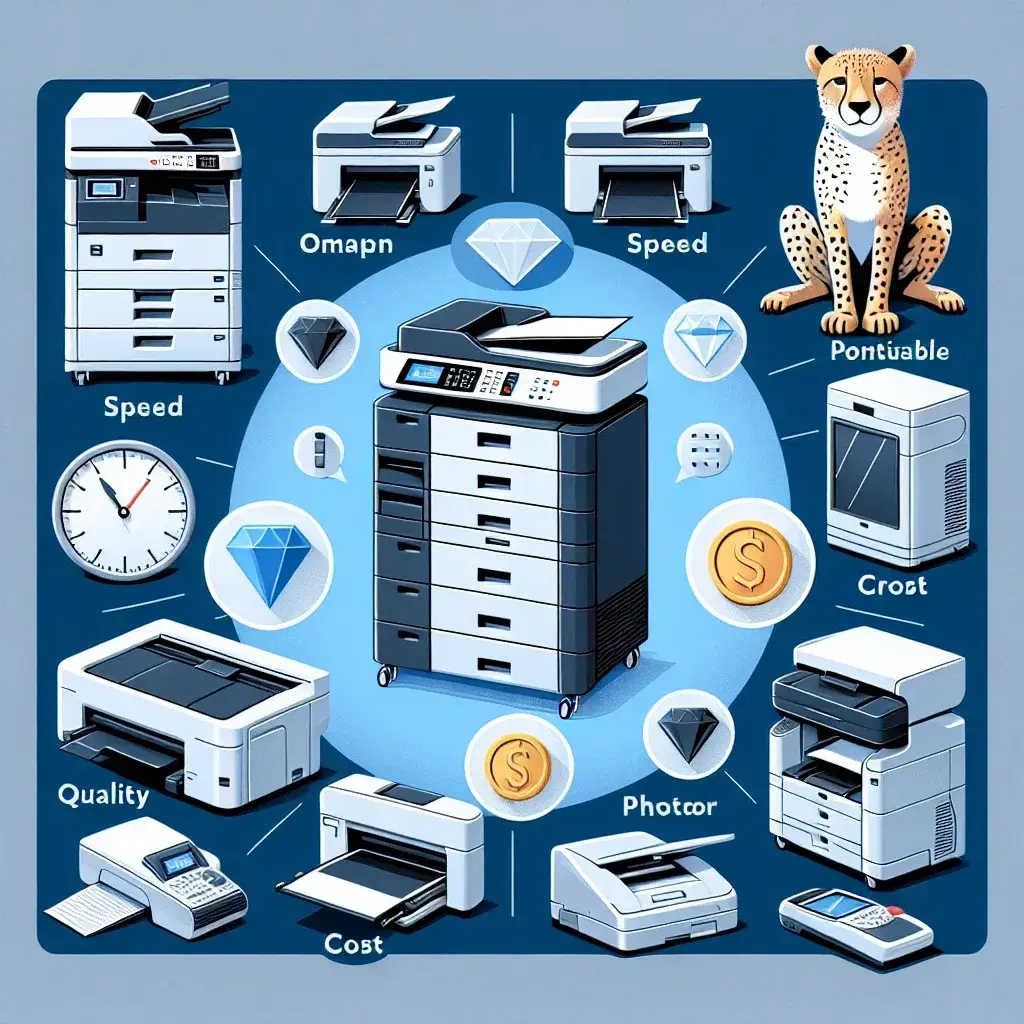How do I choose the right printer for my needs?

Choosing the right printer can be a daunting task, given the myriad of options available in the market today. Whether you are a home user, a small business owner, or someone who needs high-volume printing, selecting a printer that meets your specific requirements can save you time, money, and a lot of frustration.
Before diving into the specifics, let’s first take a look at the different types of printers and their general use cases.
Types of Printers
| Printer Type | Best For | Features |
|---|---|---|
| Inkjet Printers | Home users, photographers | High-quality color prints, affordable initial cost, versatile |
| Laser Printers | Office use, high-volume printing | Fast printing speed, lower cost per page, durable |
| All-in-One Printers | Small businesses, home offices | Print, scan, copy, fax |
| Professional Photo Printers | Photographers | High-resolution photo prints, color accuracy |
Factors to Consider
1. Print Quality
One of the most important factors when choosing a printer is the quality of print it can produce. If you need high-quality photo prints, an inkjet printer or a professional photo printer would be ideal. For text documents, laser printers are usually more than sufficient.
2. Printing Speed
Speed is crucial, especially if you have high-volume printing needs. Laser printers generally offer faster printing speeds compared to inkjet printers. Check the printer’s ‘pages per minute’ (PPM) rating to ascertain its speed.
3. Functionality
Consider whether you need a printer that can perform multiple tasks. All-in-One printers, also known as multifunction printers, can print, scan, copy, and fax. These are ideal for small offices or home offices where space and budget are limited.
4. Connectivity Options
Modern printers come with various connectivity options, including USB, Wi-Fi, Ethernet, and Bluetooth. Wi-Fi-enabled printers offer the convenience of wireless printing from multiple devices.
- USB: Direct connection from the printer to the computer
- Wi-Fi: Allows wireless printing from multiple devices
- Ethernet: Useful for networked printing in an office setting
- Bluetooth: Wireless printing from smart devices
5. Cost
It’s important to consider both the initial purchase cost and the ongoing maintenance costs, including ink or toner replacement. While inkjet printers may have a lower upfront cost, their ongoing ink costs can be higher. Laser printers, on the other hand, might be costlier initially but are cheaper in the long run due to the longevity of toner cartridges.
6. Paper Handling
If you need to print on different paper sizes or types, such as envelopes or labels, make sure the printer supports this. Additionally, consider the paper tray capacity, especially if you print large volumes frequently.
7. Size and Design
The physical size of the printer should also fit into your intended space. Some printers can be quite bulky, so measure the space where you intend to place the printer to ensure it will fit.
Specific Use Cases
Home Use
For home use, an inkjet printer is typically sufficient. They offer good print quality for both documents and photos and are generally affordable. Look for models with Wi-Fi connectivity for added convenience.
Office Use
Offices usually require fast, efficient, and reliable printers. Laser printers are ideal for this due to their speed and lower cost per page. An All-in-One printer could also be beneficial for multifunctionality.
Photography
If you are a professional photographer or someone who needs high-quality photo prints, consider a professional photo printer. These printers are designed to offer exceptional print quality and color accuracy.
Small Businesses
For small businesses, an All-in-One printer could be the best choice. It offers multifunctionality, which can save both space and costs. Look for models that offer both wired and wireless connectivity options.
Conclusion
Choosing the right printer involves carefully considering your specific needs and balancing them against your budget. Whether you require high-quality photo printing, high-volume document printing, or multifunction capabilities, there is a printer that fits your requirements. By taking into account factors like print quality, speed, functionality, cost, paper handling, and connectivity, you can make an informed decision that will serve you well for years to come.
Leave a Reply